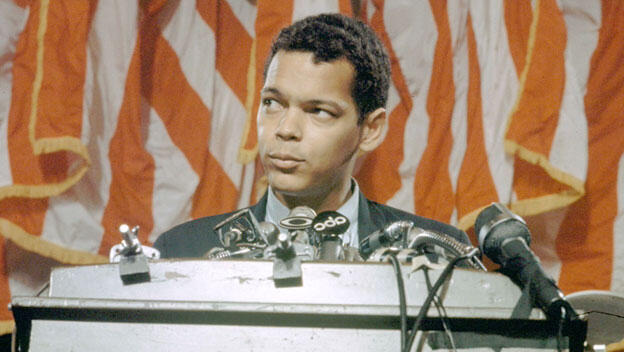The 1968 Democratic National Convention in Chicago was the most tumultuous and violent in U.S. history. Thousands of protesters led by the Yippies and other antiwar groups took to Chicago's streets to protest the Vietnam War and its support by the top Democratic presidential candidate, Vice President Hubert Humphrey. In open fighting with Chicago Mayor Richard Daley's police force, hundreds were injured. The convention scene inside the International Amphitheater was not much more cordial, with delegates bitterly split between Humphrey and his antiwar rival, Senator Eugene McCarthy. The Georgia delegation led by segregationist Governor Lester Maddox lost half its seats to a group of liberal Georgia Democrats calling themselves the Georgia Loyal Democrats. Among the Georgia Loyalists was Georgia Representative Julian Bond, a young African American politician who was seated in the Georgia state legislature in 1967 after a long fight. The legislature had twice barred him because of his antiwar and civil rights views, but the U.S. Supreme Court ruled the exclusion unconstitutional. In Chicago in 1968, Bond was nominated for the U.S. vice presidency as a protest candidate by Wisconsin delegate Ted Warshafsky on the third day of the convention. The microphone was turned off before another Wisconsin delegate could second the nomination. Being only 28 years old, Bond was seven years too young for the office of vice president and politely withdrew his name. Hubert Humphrey went on to win the presidential nomination, with Edmund Muskie as his running mate. In November 1968, the Humphrey-Muskie ticket was narrowly defeated by Republicans Richard Nixon and Spiro Agnew. Julian Bond later served in the Georgia State Senate and in 1998 became chairman of the National Association for the Advancement of Colored People (NAACP).
